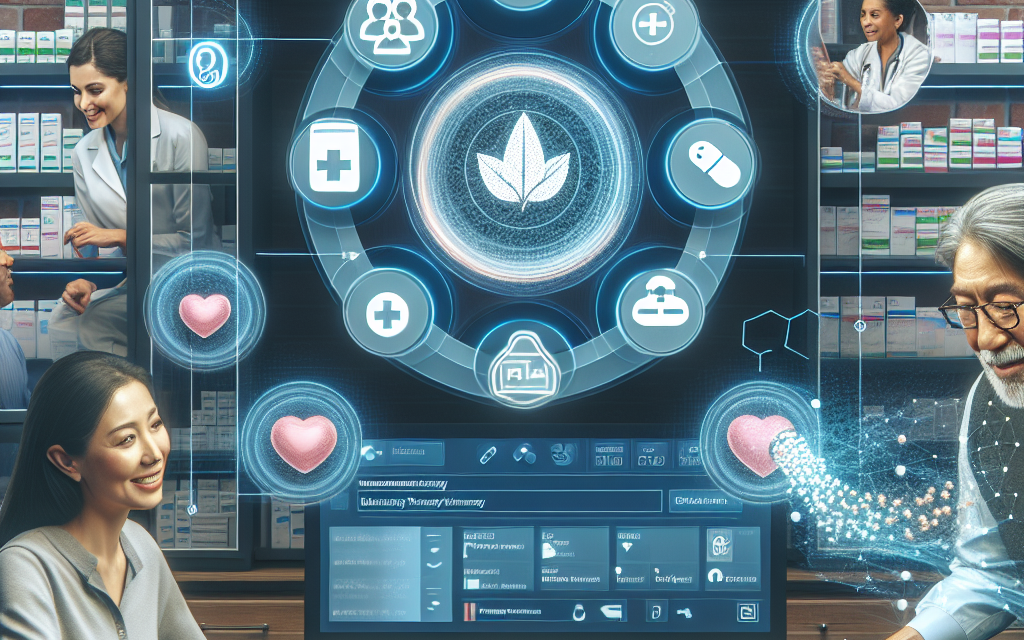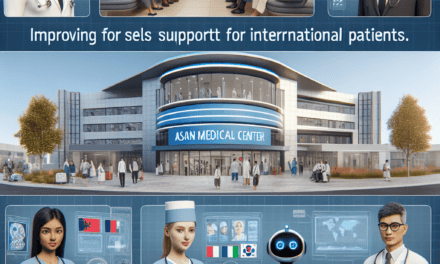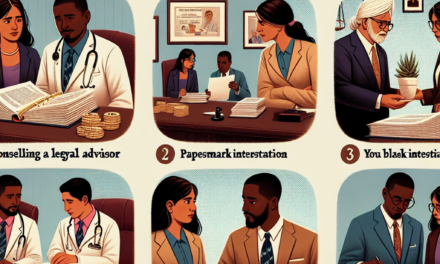Revolutionizing Patient Care: The Impact of Pharmacy Software and MTM Services
The healthcare landscape is undergoing a significant transformation, driven by technological advancements and a growing emphasis on patient-centered care. Among the most impactful innovations are pharmacy software and Medication Therapy Management (MTM) services. These tools not only streamline pharmacy operations but also enhance patient outcomes, improve medication adherence, and foster better communication between healthcare providers and patients. This article delves into the multifaceted impact of pharmacy software and MTM services on patient care, exploring their benefits, challenges, and future potential.
1. Understanding Pharmacy Software: A Foundation for Improved Care
Pharmacy software encompasses a range of digital tools designed to facilitate the management of pharmacy operations, including prescription processing, inventory management, and patient record keeping. The integration of advanced pharmacy software systems has revolutionized how pharmacies operate, leading to improved efficiency and enhanced patient care.
1.1 The Evolution of Pharmacy Software
Historically, pharmacies relied on manual processes for managing prescriptions and patient records, which were often time-consuming and prone to errors. The advent of pharmacy software has marked a significant shift in this paradigm. Modern pharmacy software solutions offer features such as:
- Electronic Prescription Processing: Streamlining the prescription workflow from the physician to the pharmacy.
- Inventory Management: Automating stock management to reduce waste and ensure medication availability.
- Patient Profiles: Maintaining comprehensive records that include medication history, allergies, and other relevant health information.
- Billing and Insurance Claims: Simplifying the billing process and improving reimbursement rates.
These advancements have not only improved operational efficiency but have also reduced the likelihood of medication errors, thereby enhancing patient safety.
1.2 Enhancing Patient Safety and Medication Adherence
One of the most significant benefits of pharmacy software is its ability to enhance patient safety. By automating prescription processing and providing alerts for potential drug interactions, allergies, and contraindications, pharmacy software helps pharmacists make informed decisions. For instance, a study published in the Journal of the American Pharmacists Association found that the implementation of electronic health records (EHR) and pharmacy software significantly reduced medication errors by up to 50%.
Moreover, pharmacy software can facilitate medication adherence by providing tools for medication synchronization, refill reminders, and patient education resources. These features empower patients to take an active role in their medication management, leading to improved health outcomes. According to the World Health Organization, medication adherence rates can increase by as much as 30% when patients receive regular reminders and support.
1.3 Case Study: The Impact of Pharmacy Software on a Community Pharmacy
A community pharmacy in a suburban area implemented a new pharmacy software system that integrated EHR capabilities and MTM services. Within six months, the pharmacy reported a 40% reduction in medication errors and a 25% increase in patient adherence rates. The software allowed pharmacists to conduct comprehensive medication reviews, identify potential drug interactions, and provide personalized counseling to patients. This case exemplifies how pharmacy software can lead to tangible improvements in patient care.
1.4 Challenges in Implementing Pharmacy Software
Despite the numerous benefits, the implementation of pharmacy software is not without challenges. Some of the common obstacles include:
- Cost: The initial investment for purchasing and implementing pharmacy software can be significant, particularly for small independent pharmacies.
- Training: Staff must be adequately trained to use the new system effectively, which can be time-consuming and resource-intensive.
- Integration: Ensuring that the pharmacy software integrates seamlessly with other healthcare systems, such as EHRs, can be complex.
Addressing these challenges requires careful planning, adequate training, and ongoing support to maximize the benefits of pharmacy software.
1.5 The Future of Pharmacy Software
The future of pharmacy software is promising, with ongoing advancements in artificial intelligence (AI) and machine learning. These technologies have the potential to further enhance medication management by providing predictive analytics, personalized medication recommendations, and improved patient engagement tools. As pharmacy software continues to evolve, it will play an increasingly vital role in revolutionizing patient care.
2. Medication Therapy Management (MTM): A Patient-Centric Approach
Medication Therapy Management (MTM) is a comprehensive service designed to optimize therapeutic outcomes for patients. MTM services involve a collaborative approach where pharmacists work closely with patients and healthcare providers to ensure safe and effective medication use. This section explores the key components of MTM and its impact on patient care.
2.1 Defining MTM Services
MTM services encompass a range of activities aimed at improving medication management, including:
- Medication Reviews: Comprehensive evaluations of a patient’s medication regimen to identify potential issues.
- Patient Education: Providing information about medications, including proper usage, side effects, and interactions.
- Care Coordination: Collaborating with other healthcare providers to ensure a cohesive approach to patient care.
- Adherence Support: Implementing strategies to improve medication adherence, such as reminder systems and follow-up consultations.
These services are particularly beneficial for patients with chronic conditions, polypharmacy, or complex medication regimens.
2.2 The Role of Pharmacists in MTM
Pharmacists play a crucial role in the delivery of MTM services. Their expertise in pharmacotherapy allows them to assess medication regimens critically and provide valuable insights to patients and healthcare providers. Key responsibilities of pharmacists in MTM include:
- Conducting Comprehensive Medication Reviews: Identifying potential drug-related problems and recommending appropriate interventions.
- Educating Patients: Ensuring that patients understand their medications and the importance of adherence.
- Monitoring Outcomes: Tracking patient progress and making necessary adjustments to medication regimens.
By leveraging their knowledge and skills, pharmacists can significantly improve patient outcomes and enhance the overall quality of care.
2.3 Evidence of MTM Effectiveness
Numerous studies have demonstrated the effectiveness of MTM services in improving patient outcomes. For example, a systematic review published in the Journal of Managed Care & Specialty Pharmacy found that MTM interventions led to a 20% reduction in hospitalizations and a 15% decrease in emergency department visits among patients with chronic conditions. Additionally, patients who received MTM services reported higher satisfaction levels and improved quality of life.
These findings underscore the importance of integrating MTM services into routine patient care, particularly for individuals with complex medication needs.
2.4 Challenges in Implementing MTM Services
While MTM services offer significant benefits, several challenges hinder their widespread implementation:
- Reimbursement Issues: Many insurance plans do not adequately reimburse pharmacists for MTM services, limiting their availability.
- Awareness and Acceptance: Some patients and healthcare providers may not fully understand the value of MTM services.
- Resource Limitations: Pharmacies may lack the necessary resources to implement comprehensive MTM programs.
Addressing these challenges requires advocacy for policy changes, increased awareness of MTM benefits, and investment in pharmacy resources.
2.5 The Future of MTM Services
The future of MTM services is bright, with increasing recognition of the pharmacist’s role in patient care. As healthcare continues to evolve towards value-based care models, MTM services are likely to become more integrated into routine practice. Innovations such as telehealth and digital health tools will further enhance the delivery of MTM services, making them more accessible to patients.
3. The Intersection of Pharmacy Software and MTM Services
The integration of pharmacy software and MTM services creates a powerful synergy that enhances patient care. By leveraging technology, pharmacists can deliver more effective MTM services, leading to improved patient outcomes.
3.1 Streamlining MTM Processes with Pharmacy Software
Pharmacy software can significantly streamline the delivery of MTM services by automating various processes. For instance, software systems can facilitate:
- Data Collection: Gathering patient information and medication history to inform medication reviews.
- Documentation: Recording MTM interventions and outcomes for future reference and quality improvement.
- Communication: Enhancing communication between pharmacists, patients, and other healthcare providers.
This automation allows pharmacists to focus more on patient interactions and less on administrative tasks, ultimately improving the quality of care.
3.2 Enhancing Patient Engagement through Technology
Pharmacy software can also enhance patient engagement by providing tools for communication and education. For example, patient portals integrated into pharmacy software allow patients to:
- Access Medication Information: Viewing details about their medications, including dosages and potential side effects.
- Schedule Appointments: Booking consultations with pharmacists for MTM services.
- Receive Reminders: Getting notifications for medication refills and follow-up appointments.
By empowering patients with information and resources, pharmacy software fosters a collaborative approach to medication management.
3.3 Case Study: Successful Integration of Pharmacy Software and MTM
A large healthcare system implemented a pharmacy software solution that included MTM capabilities across its network of pharmacies. Within a year, the system reported a 30% increase in the number of patients receiving MTM services. The software facilitated seamless communication between pharmacists and healthcare providers, leading to improved care coordination and better patient outcomes. This case illustrates the potential of integrating pharmacy software and MTM services to enhance patient care.
3.4 Overcoming Barriers to Integration
Despite the clear benefits, several barriers exist to the integration of pharmacy software and MTM services:
- Technical Challenges: Ensuring compatibility between different software systems can be complex.
- Training Needs: Staff must be trained to utilize both pharmacy software and MTM services effectively.
- Financial Constraints: The cost of implementing integrated systems may be prohibitive for some pharmacies.
Addressing these barriers requires collaboration between pharmacy stakeholders, technology providers, and policymakers to create a supportive environment for integration.
3.5 The Future of Integrated Pharmacy Services
The future of integrated pharmacy services looks promising, with ongoing advancements in technology and a growing emphasis on patient-centered care. As healthcare continues to evolve, the integration of pharmacy software and MTM services will play a crucial role in improving patient outcomes and enhancing the overall quality of care.
4. The Role of Data Analytics in Pharmacy Software and MTM Services
Data analytics is becoming increasingly important in the realm of pharmacy software and MTM services. By harnessing the power of data, pharmacists can make informed decisions that enhance patient care and optimize medication management.
4.1 Leveraging Data for Improved Patient Outcomes
Pharmacy software systems generate vast amounts of data related to medication use, patient demographics, and health outcomes. By analyzing this data, pharmacists can identify trends and patterns that inform clinical decision-making. For example:
- Identifying High-Risk Patients: Data analytics can help identify patients at risk of medication non-adherence or adverse drug events.
- Evaluating MTM Effectiveness: Analyzing outcomes from MTM services can provide insights into their impact on patient health.
- Optimizing Inventory Management: Data can inform inventory decisions, reducing waste and ensuring medication availability.
By leveraging data analytics, pharmacists can enhance their ability to deliver personalized care and improve patient outcomes.
4.2 Predictive Analytics in Medication Management
Predictive analytics is a powerful tool that can help pharmacists anticipate patient needs and optimize medication management. For instance, predictive models can identify patients who are likely to experience medication-related problems based on their health history and medication regimens. This proactive approach allows pharmacists to intervene early, preventing complications and improving patient outcomes.
A study published in the American Journal of Health-System Pharmacy demonstrated that predictive analytics could reduce hospital readmissions by 25% among high-risk patients by enabling timely interventions.
4.3 Case Study: Data-Driven Decision Making in a Pharmacy
A regional pharmacy chain implemented a data analytics program that integrated with its pharmacy software. The program analyzed patient data to identify trends in medication adherence and health outcomes. As a result, the pharmacy was able to tailor its MTM services to address specific patient needs, leading to a 15% increase in adherence rates and a significant reduction in hospitalizations. This case highlights the transformative potential of data analytics in pharmacy practice.
4.4 Challenges in Implementing Data Analytics
While the benefits of data analytics are clear, several challenges exist in its implementation:
- Data Privacy Concerns: Ensuring patient data is protected and used ethically is paramount.
- Technical Expertise: Pharmacists may require additional training to effectively analyze and interpret data.
- Integration Issues: Ensuring that data analytics tools integrate seamlessly with existing pharmacy software can be complex.
Addressing these challenges requires a commitment to data governance, ongoing training, and collaboration between pharmacy stakeholders and technology providers.
4.5 The Future of Data Analytics in Pharmacy
The future of data analytics in pharmacy is bright, with ongoing advancements in technology and a growing emphasis on data-driven decision-making. As pharmacists continue to embrace data analytics, they will be better equipped to deliver personalized care, optimize medication management, and improve patient outcomes.
5. The Impact of Pharmacy Software and MTM on Healthcare Systems
The integration of pharmacy software and MTM services has far-reaching implications for healthcare systems as a whole. By improving medication management and enhancing patient care, these innovations contribute to more efficient and effective healthcare delivery.
5.1 Reducing Healthcare Costs
One of the most significant impacts of pharmacy software and MTM services is their potential to reduce healthcare costs. By improving medication adherence and preventing adverse drug events, these services can lead to significant cost savings for healthcare systems. According to a report from the Pharmacy Quality Alliance, effective MTM services can save healthcare systems an estimated $1,000 per patient annually by reducing hospitalizations and emergency department visits.
5.2 Enhancing Care Coordination
The integration of pharmacy software and MTM services fosters better care coordination among healthcare providers. By facilitating communication between pharmacists, physicians, and other healthcare professionals, these tools ensure that all members of the care team are informed about a patient’s medication regimen and health status. This collaborative approach leads to more cohesive care and improved patient outcomes.
5.3 Case Study: A Healthcare System’s Success with Integrated Pharmacy Services
A large healthcare system implemented an integrated pharmacy software solution that included MTM services across its network of hospitals and outpatient clinics. Within two years, the system reported a 20% reduction in hospital readmissions and a 15% decrease in emergency department visits among patients receiving MTM services. This case illustrates the potential of integrated pharmacy services to enhance patient care and reduce healthcare costs.
5.4 Addressing Health Disparities
The implementation of pharmacy software and MTM services can also play a role in addressing health disparities. By providing personalized care and support to underserved populations, pharmacists can help bridge gaps in healthcare access and improve health outcomes. For example, targeted MTM services for low-income patients with chronic conditions can lead to better medication management and improved health status.
5.5 The Future of Pharmacy in Healthcare Systems
The future of pharmacy within healthcare systems is promising, with ongoing advancements in technology and a growing emphasis on patient-centered care. As pharmacy software and MTM services continue to evolve, they will play an increasingly vital role in enhancing patient care, improving health outcomes, and reducing healthcare costs.
Conclusion
The integration of pharmacy software and Medication Therapy Management (MTM) services is revolutionizing patient care by enhancing medication management, improving patient safety, and fostering better communication among healthcare providers. As the healthcare landscape continues to evolve, these innovations will play a crucial role in delivering high-quality, patient-centered care.
Key takeaways from this article include:
- The evolution of pharmacy software has significantly improved operational efficiency and patient safety.
- MTM services provide a patient-centric approach to medication management, leading to better health outcomes.
- The integration of pharmacy software and MTM services creates a powerful synergy that enhances patient care.
- Data analytics is becoming increasingly important in optimizing medication management and improving patient outcomes.
- The impact of pharmacy software and MTM services extends beyond individual patients, contributing to more efficient healthcare systems and addressing health disparities.
As we look to the future, the continued advancement of pharmacy software and MTM services will be essential in shaping the next generation of patient care, ultimately leading to healthier populations and more sustainable healthcare systems.





